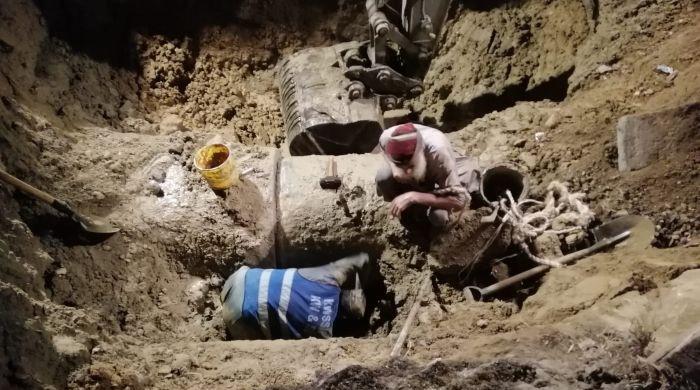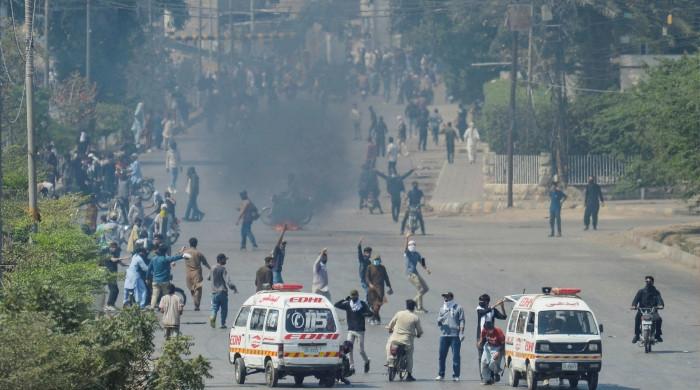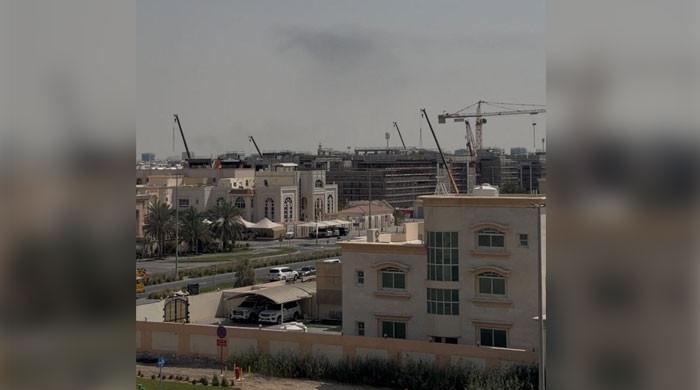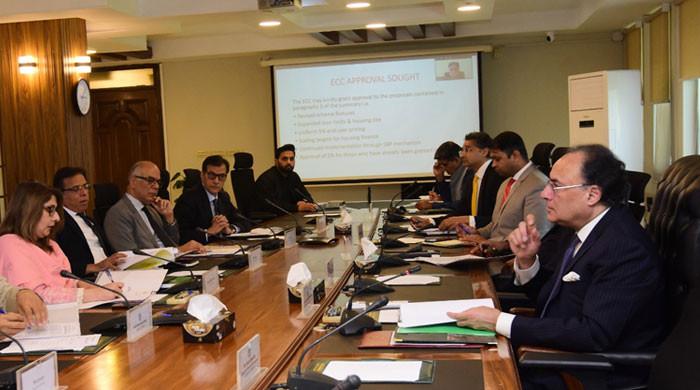Rains lash Karachi: A guide to staying safe
Heavy rains have lashed Karachi and the Provincial Disaster Management Authority Sindh has issued multiple warnings directing all land departments to take 'precautionary measures' to...
August 31, 2017
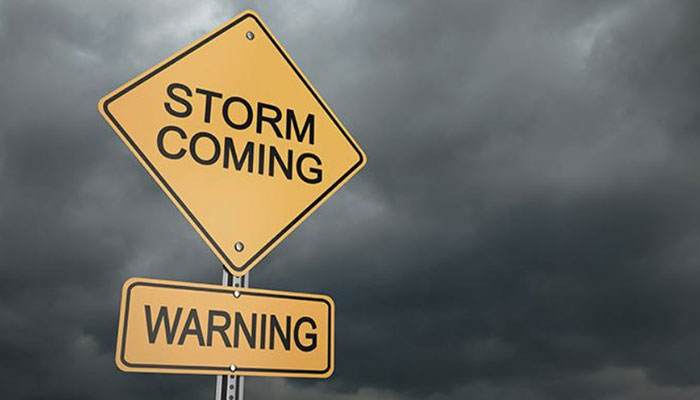
Heavy rains have lashed Karachi and the Provincial Disaster Management Authority (PDMA) Sindh has issued multiple warnings directing all land departments to take 'precautionary measures' to avoid any untoward situation and make sure the response mechanism is adopted.
Speaking to Geo.tv, Director General PDMA Sindh Salman Shah said that if the metropolis witnesses up to 40 millimetres of rainfall it would not create problems. He added that while urban flooding will take place the water will flow out within 2-4 hours.
Shah told Geo.tv, "We have already deployed 50 dewatering machines to KMC and different DMCs" to ensure timely dewatering of areas where urban flooding is likely to create problems for citizens.
When asked if any warnings or precautionary notes had been issued to the public at large, Shah said, "since Karachi does not witness much rainfall citizens tend to come out onto the streets, I would advise people to stay indoors during heavy rainfall because it can be very dangerous."
He added that in low lying areas and informal settlements, certain buildings had been identified where affectees will be housed incase the weather becomes extreme. The temporary shelters will be managed by the DMCs, Shah told Geo.tv
Since most of Karachi's woes emanate not from the actual rain but a lack of proper drainage, Geo.tv asked Shah if any precautionary measures had been taken to minimize problems for citizens. Shah confirmed that the PDMA held a meeting with the stakeholders and directed KMC and DMCs to ensure main drains of the city were cleaned ahead of time.
However, since the PDMA is not responsible for overseeing the coordination and progress of KMC and DMCs its role stopped after providing the required equipment, Shah concluded.
The commissioner Karachi is out of the country for pilgrimage, therefore Geo.tv reached out to his office for comment and updates. The spokesperson confirmed that all district commissioners had been directed to stay in close contact with all relevant departments to ensure timely dewatering of areas as well as the creation of a Commissioner's complaint cell.
Safety guidelines
Karachi's major woes are not caused by the actual rainfall but from the lack of proper drainage which results in urban flooding. Rainfall, coupled with strong winds add to problems for citizens.
In order to protect yourselves, your loved ones and your property, we would like to share some guidelines which could help avoid any untoward incident. These are guidelines only and in no way guarantee protection from harsh weather.
Electric Shock
- Water is a very good conductor of electricity. During harsh weather power lines break and can turn a pool of water into a deathtrap.
- Avoid venturing outside during heavy rainfall on foot
- If venturing outdoors is necessary, avoid wading through water if you see broken power lines have fallen into the water.
- In case of broken power lines, promptly inform K-Electric on their helpline (listed below).
- Avoid touching wet electrical switches such as doorbells
Protect your vehicle
While it is advisable to stay indoors during heavy rainfall, if you must be on the roads make sure your vehicle is equipped to deal with the rainfall.
- Make sure your windscreen wipers are functioning properly
- The most common cause of vehicle breakdowns is when water is sucked into the exhaust pipe when driving through water. Usually connecting a high-grade piece of pipe to make sure water does not find its way into the exhaust can make the difference between a car stalling and running during heavy rainfall.
- Make sure all headlights and hazard lights are working properly as visibility will be affected, so even in the day time keep those lights on high beam.
- Adjust how you drive according to the weather. You will have to drive slower and pay more attention to the road than usual to avoid skidding, slipping and causing a collision.
- Depending on your vehicles it may not be advisable to drive through water deeper than a few inches without hydroplaning - which is when your tyres lose contact with the road.
- If your vehicle begins to skid, do not slam the breaks, remain calm and guide your vehicle in the direction you wish to proceed.
Protect your home
The most common damage to homes is caused by water creeping in through open windows, leaky roofs, skylights, and from terraces without proper drainage.
- Make sure all windows and skylights are closed properly to avoid water coming through.
- For areas that are open such as terraces where water may collect, including roof tops, make sure all drains are unclogged to allow proper drainage. Water accumulating will find a way out, usually inside the house from under doors and cracks.
- Make sure all exposed electrical wires are properly sealed. Avoid using any electrical appliances in open areas.
- If there are trees near your house, make sure all dead branches are trimmed which can cause damage if ripped off due to strong winds and rain.
- For those people who have basements in their houses, purchase sandbags to keep the water at bay and avoid flooding your basement. Be prepared to move furniture to higher floors incase water does break your sandbag barriers.
- Make sure you have a stocked First Aid kit.
- Stock up on batteries and flashlights, as the power is likely to go out.
- Charge your cellphone and any devices you might need during a power breakdown.
Stock up on essentials
While the rainfall is unlikely to have any long term impact. It is advisable to stock up on basic essentials to avoid venturing out during heavy rainfall.
Emergency numbers
It is advisable to make note of emergency numbers incase you need them. We pray that you do not.
- Edhi Information: 115, 02132340066, 02132340077
- Police Helpline: 15, 02199212652, 02199212634
- Fire Brigade: 16, 02199215007, 02199215008
- K-Electric complaint: 118
- Railway Inquiry: 02199213536
- Airport Inquiry: 114





